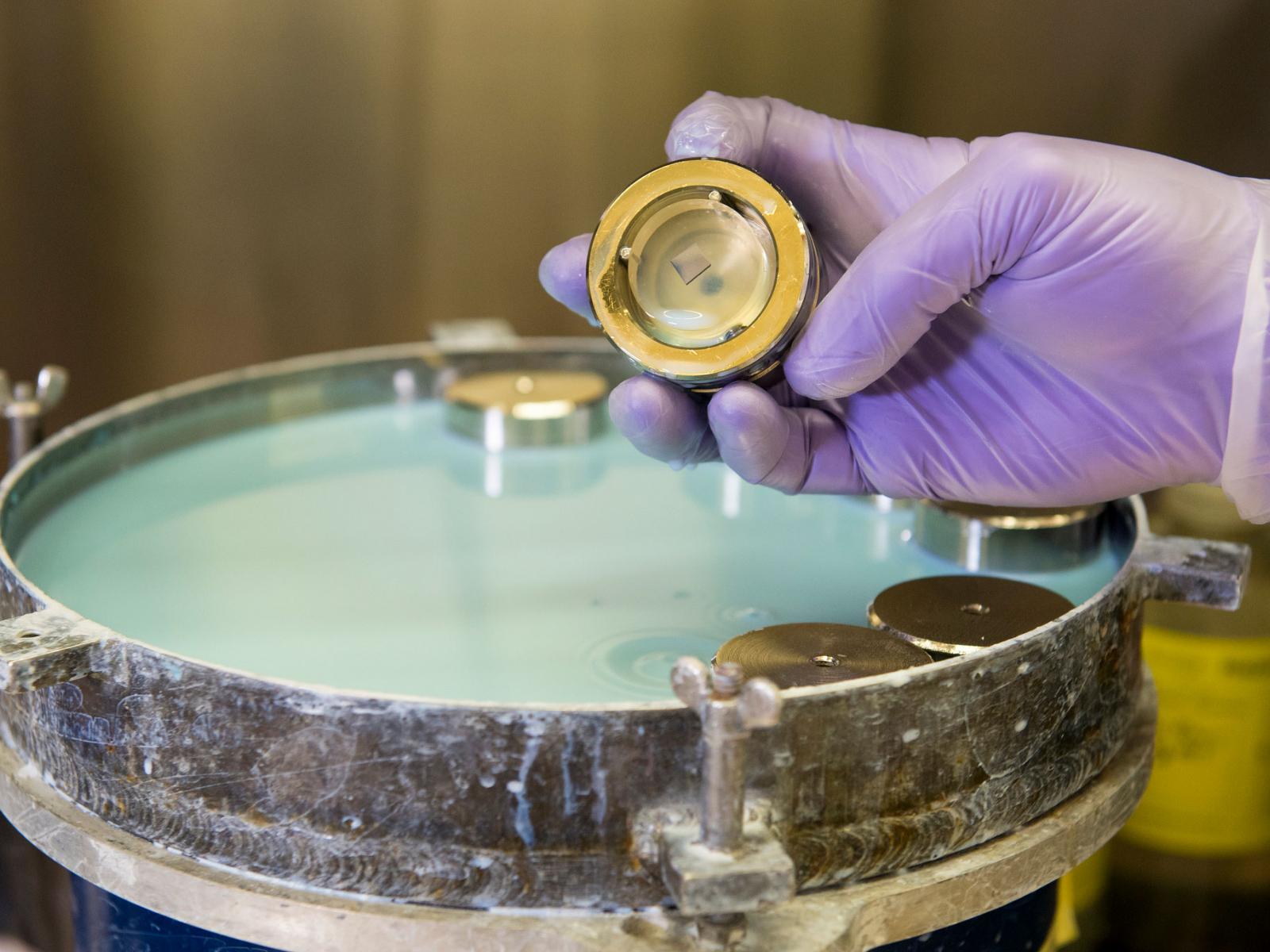Condensed Matter Physics & Materials Science

Technician Mark Rhodes performs lab work on a variety of structural materials.
The condensed matter physics and materials science capability forms our knowledge base for discovery and design of new materials with novel structures, functions, and properties. Our domain expertise lies in synthesis of nanostructured and biomolecular materials, in situ electron and scanning probe microscopy, radiation effects and degradation in materials, and computational materials science. By combining this capability with other PNNL core capabilities, we understand and manipulate complex phenomena at solution-solid and solid-solid interfaces. We can better understand, design and synthesize hierarchical matter, and develop computational tools that clarify the mesoscale principles linking atomistic details of structure and interactions to outcomes of synthesis and function.
PNNL’s Energy Sciences Capability project will strengthen our efforts in the predictive design and understanding of chemical transformation processes. The project will include close integration with chemical and molecular sciences capabilities through emphasis on predictive synthesis of hierarchical materials, addressing the need to translate an understanding of catalytic processes into multifunctional catalytic materials.
PNNL makes significant contributions to the synthesis of hierarchical materials, both inorganic and organic, bringing advanced imaging and spectroscopy tools to this research. Computational approaches draw on our leadership in computational chemical physics as well as new capabilities in condensed matter theory and computation. A strength is understanding the complexity at interfaces, specifically the role of interfaces in synthesis and in the control of transport of matter and energy. These strengths have contributed to research at the Joint Center for Energy Storage Research (JCESR), an Energy Innovation Hub led by Argonne National Laboratory.
This capability is managed for programs in the Department of Energy’s (DOE's) Office of Science (Basic Energy Sciences, Biological and Environmental Sciences). It’s also managed for DOE’s Office of Electricity, Office of Nuclear Energy, Office of Energy Efficiency and Renewable Energy, and the National Institutes of Health.